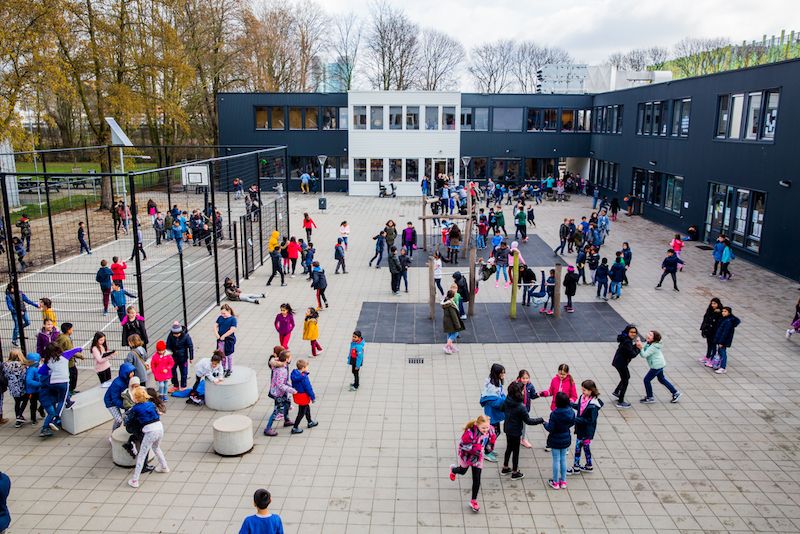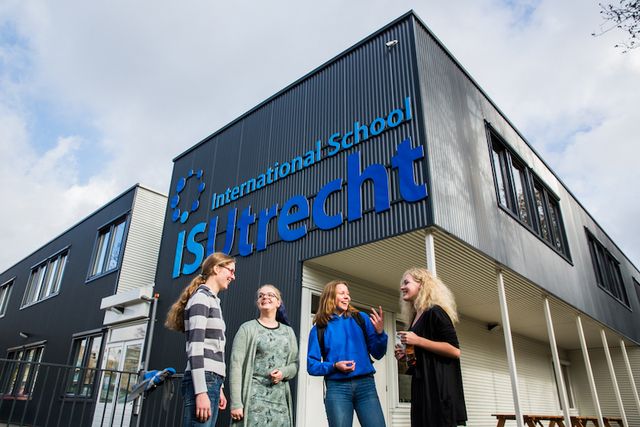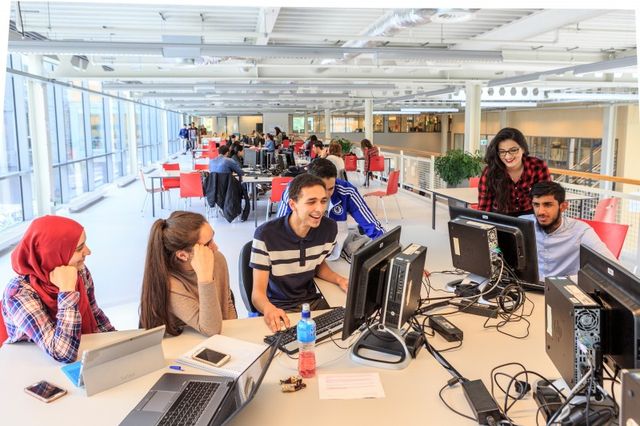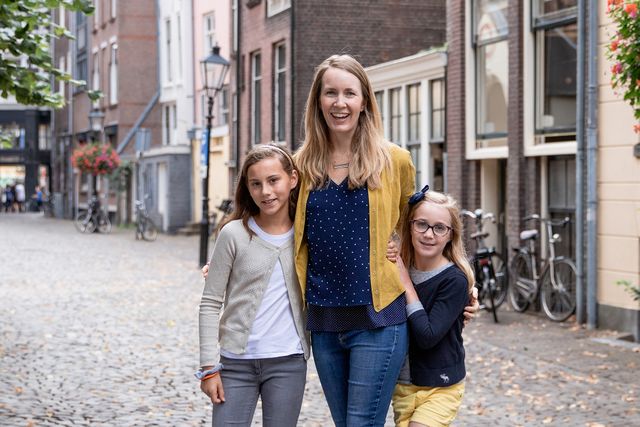Primary & secondary education
Education is compulsory for children aged five until 16 in the Netherlands. This is called leerplicht. Children usually start their ‘educational path’ at preschool. This is followed by eight years of primary school and then between four and six years (depending on the chosen level) of secondary school. In this section, we provide you with information on primary and secondary education in the Netherlands and offer an overview of Utrecht Region’s international and bilingual schools.
Primary education
Primary education (basisonderwijs) is intended for children between the ages of four and 12 and is compulsory from the age of five. During the eight years of primary school (basisschool), children learn basic skills such as reading, writing and maths. When children turn 11 or 12, they attend secondary education.
Taalschool Utrecht
Please note that non-Dutch speaking children in the four- to 12-year age group who live in the city of Utrecht need to attend Taalschool Utrecht before they can go to a regular Dutch primary school. Taalschool Utrecht focuses on teaching children to use Dutch so that they have the smoothest start possible at primary school. Most children need about 18 months at Taalschool before they can transfer to a regular primary school. In addition to learning Dutch, other subjects are taught as well: the children follow the standard Dutch education curriculum in accordance with their age.
Basisschool
In the Netherlands, most children start primary school (basisschool) the day after their fourth birthday, with many transitioning from Dutch childcare centres. Primary schools consist of eight grades (groepen), ranging from groep 1 (four year olds) to groep 8 (11 to 12 year olds). In the final year of Dutch primary school, parents, children and teachers decide together, with the help of a standardised national test (the most frequently used is the CITO test), the type of secondary school that is most appropriate and suitable for a child.
In Utrecht Region, there is a generous selection of schools with a wide range of educational philosophies and practices. Education is genuinely child-centred. Children receive all the support necessary to become competent, confident participants in today’s connected, multi-disciplinary world.
Application and enrolment
Visit the website naardebasisschool.utrecht.nl to find an extensive brochure in English explaining the five steps you must complete for your child to start school for the first time.
Secondary education
At the age of 12, children start attending secondary school (middelbare school). There are various types of secondary education.
- Preparatory vocational secondary education (vmbo)
Education lasts four years, after which the student can continue to secondary vocational education (mbo). - Senior general secondary education (havo)
Education lasts five years, after which the student can continue to higher professional education (hbo). - University preparatory education (vwo)
Education lasts six years, after which the student can continue to university (wo).
Funding
The Netherlands has different types of schools. Most are funded by the government, such as public, special (religious) and general-special (neutral) schools. The schools are officially free of charge but may request a contribution from parents, called an ouderbijdrage. Private schools are less common and not funded by the government. They cover their expenses with tuition fees.
School holidays
In the Netherlands, school holidays differ per region (north, central and south). To avoid a holiday rush, each region has its own vacation schedule. Utrecht Region belongs to the central region. Please note that the government does not permit parents to take their children on vacation outside of the school holiday periods (exceptions apply).




